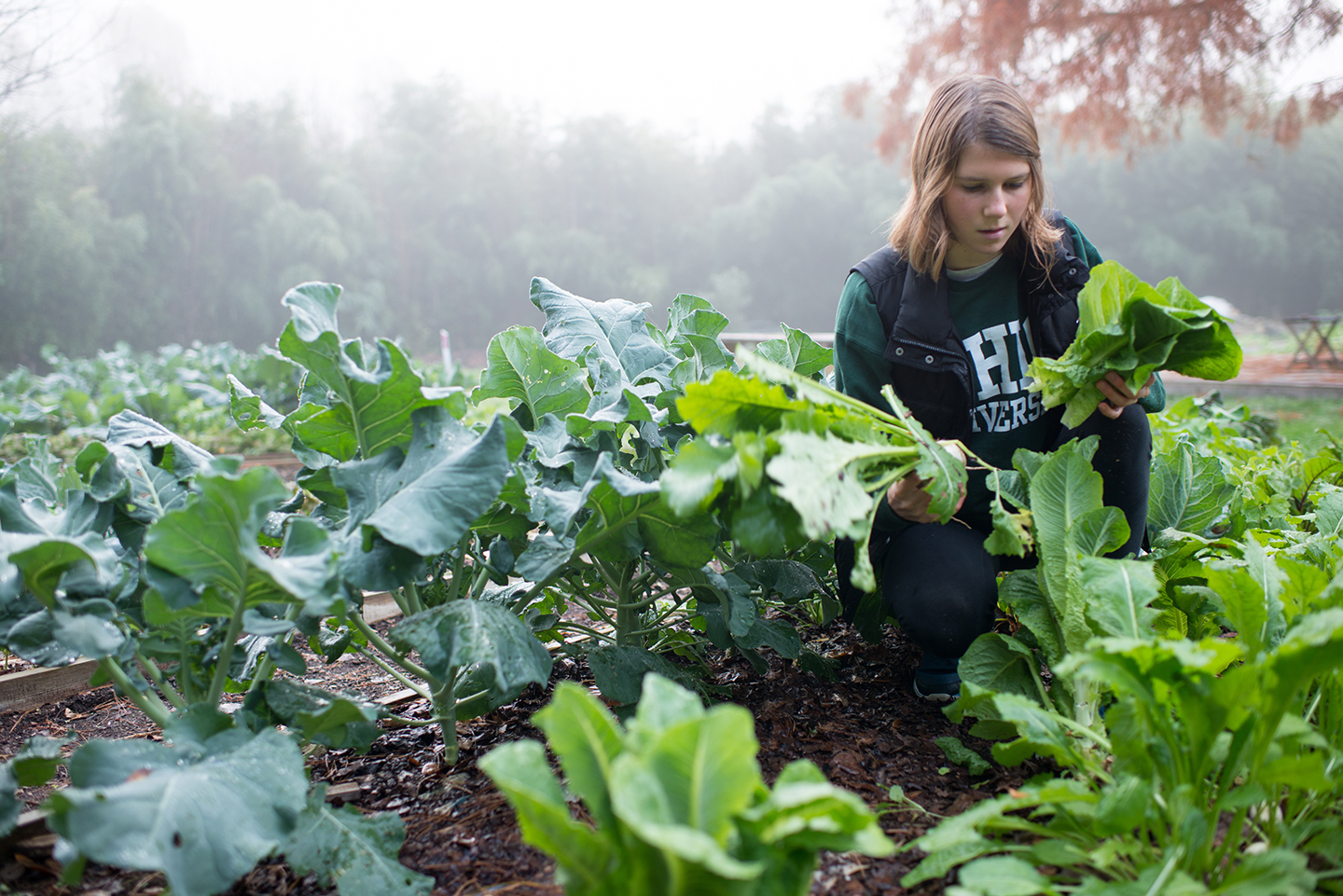
Food for thought
Jack Demain stands at a table in the basement of United Campus Ministry and begins chopping a head of green cabbage, which he then massages in front of an attentive audience of about two dozen people, mostly Ohio University students. They’ve come to this presentation on fermented foods to learn how to make sauerkraut, part of a collaboration between the Athens Vegan Cooking Workshop and the student group Food Matters at Ohio University.
Mary Reed, BSJ ’90, MA ’93 | December 18, 2017
Share:
Food Studies enters the academy
The participants pepper Demain, BSS ’18, with questions: What would this pair well with? Do you add any other spices besides salt? Does it get more nutritious if you leave it to ferment longer? The level of engagement is one that professors dream of, yet there is no professor in sight. Faculty are more of a back story tonight.
“I took Art Trese’s sustainable agriculture (course). It changed my life,” Demain says. He’s not exaggerating. The class led Demain to an internship on a farm in Alaska, a capstone course in Cuba studying sustainable agriculture, and a specialized studies major titled “Sustainable approaches to food production.”
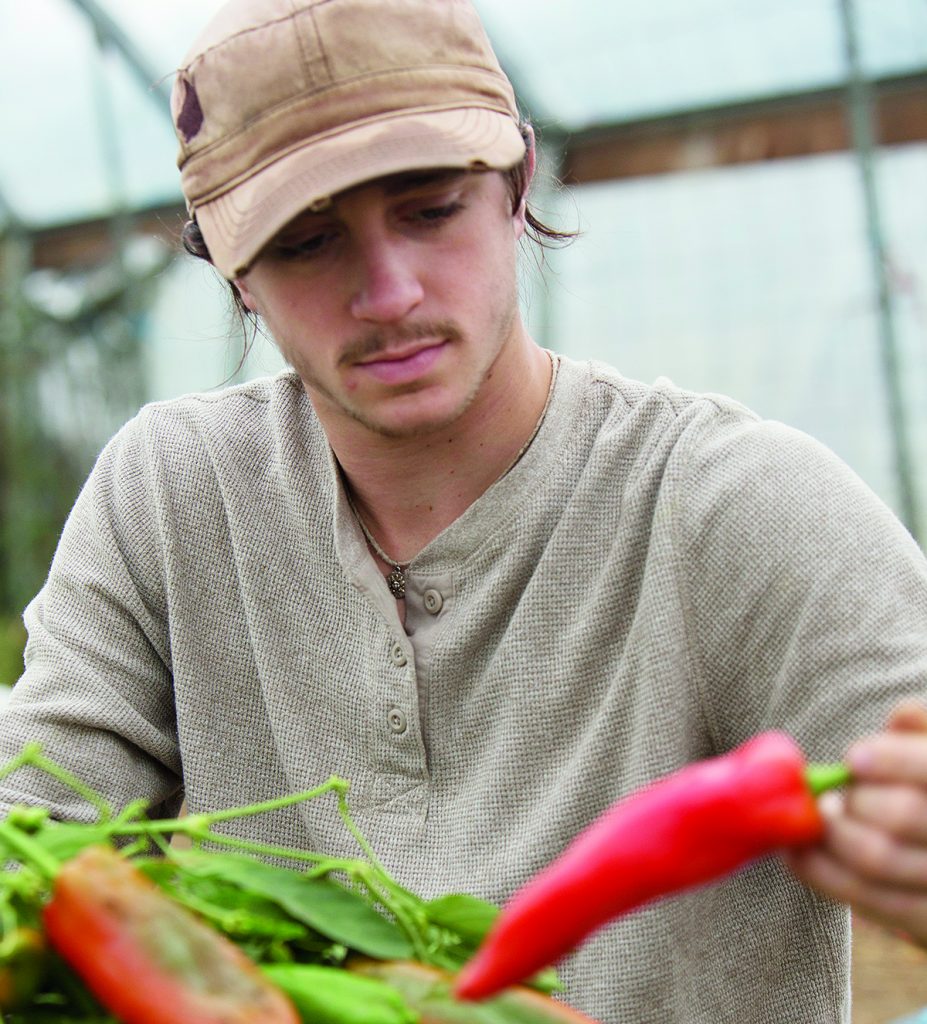
Jack Demain, a specialized studies major, works at the Plant Biology Learning Gardens on West State Street, where student-grown produce is harvested. Photo by Alexandria Polanosky, BSVC ’17
Sustainable Agriculture is a course within the Food Studies theme in the College of Arts and Sciences. The college made the move in 2014 to group courses around thematic subject areas—in this case, food—so students could dive deep into a subject area that appeals to them while also completing their required general education classes. Food Studies students can take courses like Geography of Hunger and Food Security, Before the Sickle and Plow: Archaeology of Foraging Societies, and Thomas Jefferson: Gardener and Gastronome.
“Once I realized the environmental degradation, the working conditions, the animal cruelty, the health costs (of food production), it was like I couldn’t turn back,” Demain says. “I had to grow food in the right way.” He now tends a plot at an Athens community garden and in his front yard. He teaches his fellow students how to grow and prepare their own food. Demain’s long-term goal is to start a farm near Athens.
Tonight’s participants begin cooking a meal. It includes potatoes, onions, and garlic from the Plant Biology Learning Gardens near campus—the same gardens from Demain’s life-changing Sustainable Agriculture class.
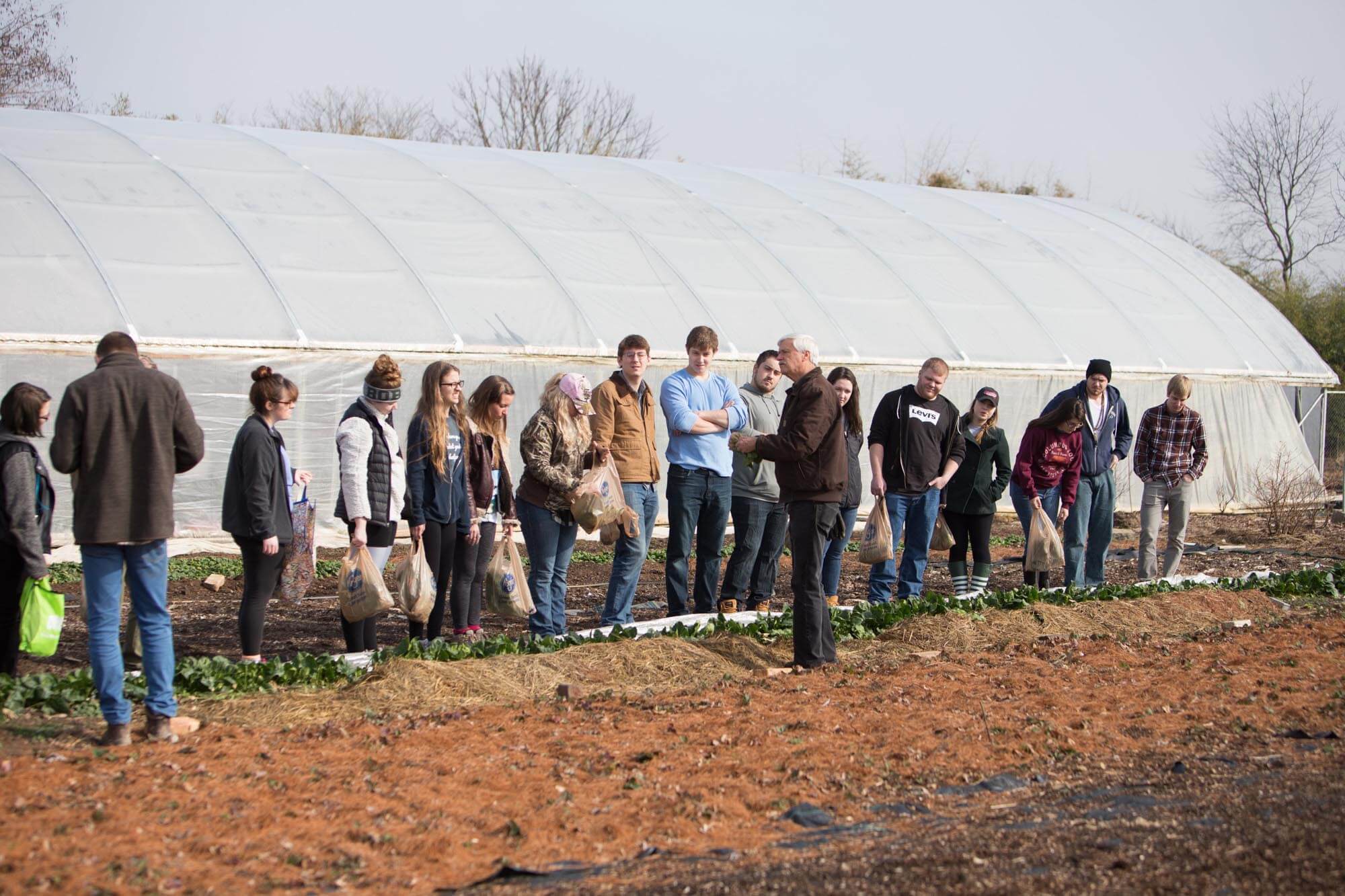
Arthur Trese, associate professor of environmental and plant biology (middle), talks to student produce-growers after a harvest at the Plant Biology Learning Gardens. Photo by Alexandria Polanosky, BSVC ’17
Serving up a food ecosystem
Athens was a hub of the local foods movement decades before “locavore” became the Oxford American Dictionary ’s word of the year in 2007. The wildly popular Athens Farmers Market has been going strong since the 1970s, and restaurants have been purchasing ingredients from local farmers since the popular Athens restaurant Casa Nueva and Cantina took that step in the 1980s.
“I think Athens and Ohio University are perhaps the best places in the country for undergraduates to study food,” says Theresa Moran, director of the Food Studies theme. Locally grown food in markets and restaurants are joined by food-centered local nonprofit organizations to create a food ecosystem that serves everyone, Moran says. For example, Athens’ Community Food Initiatives runs community gardens, saves seeds, collects fresh produce to share with local food banks, and teaches food entrepreneurship skills to kids.
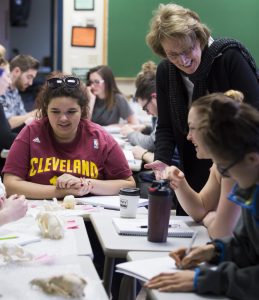
Assistant Professor and Food Studies Theme Director Theresa Moran mixes with Food Matters Club members at an interactive archaeology workshop. Photo by Alexandria Polanosky, BSVC ’17
“Food has been devalued as a subject of scholarly research in part because it’s omnipresent for most people in developed countries,” Moran says. But, she argues, food touches every academic discipline, from public health to medieval studies to war and peace. This is why the Food Studies theme was able to launch with existing courses in the catalog.
The informal mission statement of Food Studies is a question: Where does your food come from? “It’s inculcating lifelong skills and lifelong knowledge,” Moran says. “What is the impact on my body, my community, my environment…and how do I make those choices to align with what I believe in?” In summer 2017, Food Matters faculty participated in a Tour de Farm so new faculty members could take in local farms, processors, restaurants, and brewers.
Many Food Studies theme students—with majors as diverse as nutrition, sociology, and photojournalism—go on to earn a 20-credit-hour Food and Society certificate. The certificate’s capstone course has an internship option. Students intern at nonprofits like Rural Action, which runs a produce auction, and the Appalachian Center for Economic Networks, which houses a commercial kitchen. Both support the regional food ecosystem. Interns can apply for a stipend to offset living and travel costs—with stipend funding coming from produce sales from the Plant Biology Learning Gardens.
Sowing seeds of change
As participants in tonight’s Vegan Cooking Workshop prepare potato pancakes and chocolate cake, laughter is interspersed with dialogue about topics like what’s considered “local food” and if a sustainable food system can exist inside a framework of capitalism. Food Matters at Ohio University president and Food Studies theme student assistant Joy Kostansek, BA ’18, announces upcoming Food Studies theme-endorsed programs: a visit to the Athens Campus from an organic farmer and author, and a sustainability-themed film at Athens’ Athena Cinema.
“We’re trying to appeal to everyone,” Kostansek says, referring to the variety of programming. “Because everybody eats.”
Read more about OHIO’s efforts to mitigate food insecurity elsewhere in this issue of ohiotoday .
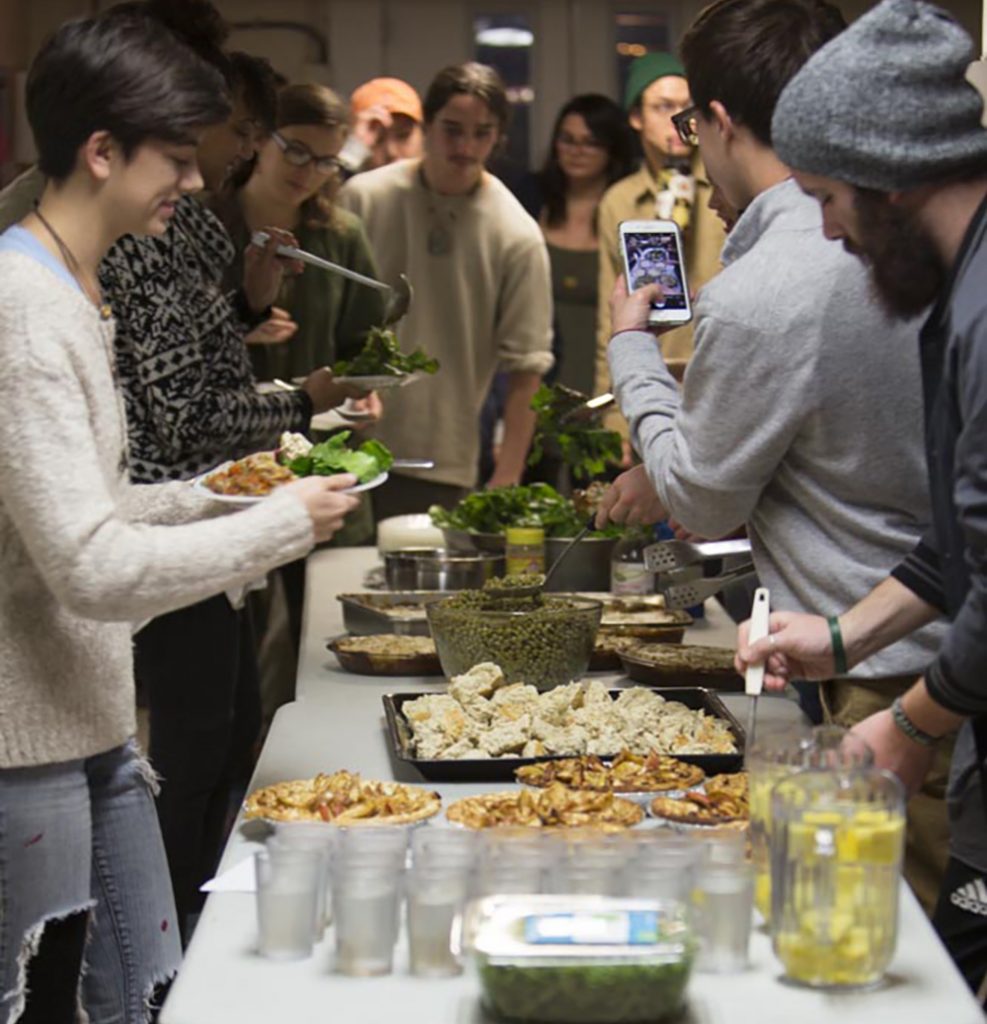
OHIO and Athens community members fill their plates at a United Campus Ministry Vegan Cooking Night event in Athens. Photo by Alexandria Polanosky, BSVC ’17



